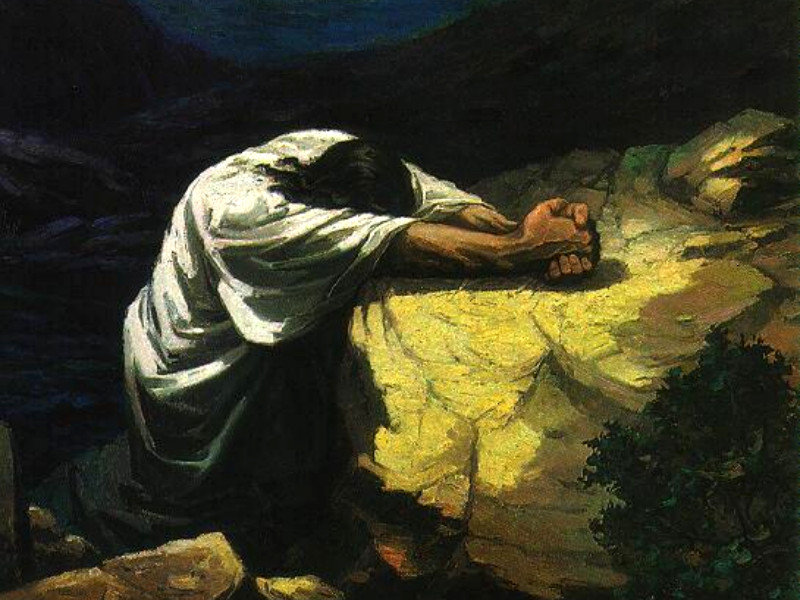This is the introduction to part two, coming in several days. In part two, we’ll look at the thoughts of a survivor of a Nazi concentration camp, and the life and death of an early saint plagued with palsy.
“In bringing many sons to glory, it was entirely appropriate that God–all things exist for Him and through Him–should make the Author of their salvation perfect through sufferings.” Hebrews 2:10
In the New Morality embraced by many Americans, an individual’s worth is dependent on their capacity to experience pleasure and/or ability for self determination (particularly external choices – whether to choose a certain job, or choose a certain gender, or spouse, or place to live, etc). To the extent that one’s capacity for these things is diminished, life becomes worth less. From a Christ-centered perspective, life’s worth is based on an ability to experience union with God. This purpose is far greater than the pursuit of ‘pleasure’ and godless self-actualization.
Therefore from a Christ-centered perspective, suffering and evil – though opposed to God’s intention for creation – are an opportunity to affirm the intrinsic worth of life, to choose relationship with the crucified God over the pursuit of self-will, and to agree with God that living relationship and mutual love with Him is worth the risk of pain. Suffering, then, does not reduce the inherent worth or value of life.
Because of this, the apostle Peter taught that believers can be not only “partakers of the divine nature” (2 Peter 1:4), but also taught suffering believers, “be very glad–for these trials make you partakers with Christ in his suffering, so that you will have the wonderful joy of seeing his glory when it is revealed to all the world” (1 Peter 4:13). Christ united Himself with humanity, shared in our suffering, sanctified suffering, and offers Himself as a companion and fellow-partaker with those who are suffering.
It is because of this that even suffering in the face of purposeless evil can be recognized as an experience shot-through with the light of Life itself. Even in the very act of suffering on the cross, Jesus did it “for the joy that was set before Him” (Hebrews 12:2) – the joy of redeeming people. Christians recognize most profoundly that even in the midst of very real suffering, there can be joy as we look beyond it to the One who loves us more than life.
IS MY LIFE WORTH ANYTHING IF…
Contrast this with the godless and hopeless view of life’s inherent worthlessness, romanticized in the recently released movie “Me Before You.” The film follows the fictional Will Traynor. Despite often having a wonderful time in his youthful and privileged life, and falling mutually in love with his caretaker, Will decides to kill himself because he is a quadriplegic and feels he cannot live his life most fully.
Our culture allegedly values the individual. But without God (and the doctrine that humans are made for intimate eternal fellowship with Him) it has no foundational basis for understanding what our value is. In the quest to find meaning without Jesus, it has redefined individual worth: worth must be conjured by the individual out of the nothingness from which they came. Our society has settled on replacing individual value with individual choice of any kind. To this culture, individuality and choice are almost synonymous, and human worth is based upon these.
Bearing this out, the primary reasons people seek out physician assisted suicide is because they feel they are a burden to others (limiting the choices and freedom of their loved ones have to freely ‘self-actualize’), they themselves feel limited, and they want to take control over the time and method of their death. Disabling physical pain is not amount the chief reasons.
One movie review scorned the movie as “inarguably obscene in its superficial portrayal of the disabled, arguing that when your limbs are useless, you’re useless, too.” One might point to Nick Vujicic, a phenomenally inspiring Christian, as a living rebuttal to this sad tale of New Morality.
THE IDOL OF CHOICE: IS “CHOICE” WORTH MORE THAN “ME”?
It only makes sense that this new culture tends to bemoan the elimination of people’s choices more than the elimination of a human being per se. For instance, killing babies for no particular reason other than the mother’s decision is applaudable as long as it is framed in terms of a woman’s choice. Leaving your spouse and children and breaking your marriage vows – as long as it is to reinvent (or rediscover, or stop hiding, or whatever other phrase you want) your sexuality as a gay man or lesbian woman or woman trapped in a man’s body, etc – is applauded. The idea that we would ask someone to be responsible, and thus deny their limitless self-creation, is anathema to this New Morality.
The underlying alienation from God (who is Truth) has led to the point that the members of this godless ethos applaud even the individual’s choice for self-destruction: spiritual destruction, moral destruction, denying the body’s testimony to its own identity, or even literally killing oneself. For all of these choices, the culture of Self (read, “culture of death”) rises to its feet and feverishly applauds.
LOVING UNION WITH GOD IS THE HIGHEST PURPOSE OF LIFE
In contrast, Christianity embraces the most profound miracle of love and meaning: God became one of us. He who was truly God became a true descendant of Adam. He had a real heart that pumped real blood, real arms with real bones and muscle and skin that held others as they cried, real hands that were bound with cruel ropes, pierced with real nails, real eyes which cried real tears of real human pain and sorrow. And God does not do meaningless things, as Mackenzie reminds us. Christ’s union with us – even as we travel through sorrow – means that there is great meaning in life, even in suffering.
“Do you know what hurts so very much? It’s love. Love is the strongest force in the world, and when it is blocked that means pain. There are two things we can do when this happens. We can kill that love so that it stops hurting. But then of course part of us dies, too. Or we can ask God to open up another route for that love to travel.” – Corrie Ten Boom
Perhaps, in this “vale of tears,” the path of true love is always to some extent a path through suffering.
“To love at all is to be vulnerable. Love anything and your heart will be wrung and possibly broken. If you want to make sure of keeping it intact you must give it to no one, not even an animal. Wrap it carefully round with hobbies and little luxuries; avoid all entanglements. Lock it up safe in the casket or coffin of your selfishness. But in that casket, safe, dark, motionless, airless, it will change. It will not be broken; it will become unbreakable, impenetrable, irredeemable. To love is to be vulnerable.” -CS Lewis – “The Four Loves”
But perhaps we are asking the wrong question. Perhaps we are the ones being questioned… by Life. By God.
In this world of were we have created idols and self-worship against God’s plan, God sometimes allows us to be ‘sifted.’ Though frighteningly painful, this sifting shows us what we have been clinging to… and what we must ultimately let go of so that we can fully hold on to the greatest and most satisfying treasure of all: God with us.
In the coming Part Two of today’s article, we’ll look at the story of a Christian martyr and the thoughts of a God-fearing psychologist who survived the Nazi concentration camps. What question is Life asking us as we go through suffering? Part Two can be found here when published.
In a few days AJ will be writing on two biblical characters who focus on Jesus in different ways – one way is wrong; and one is “The one thing necessary.”
In a related post tomorrow, Mackenzie writes on Peter being sifted and what this means for us as members of the church Jesus built on him and the other apostles.
Sign up for notifications on our FB page to get the updates when they come out!
I’d love to read your comments on how Christians live out purpose and hope in the midst of the purposeless suffering and evil in the world.




1 reply »